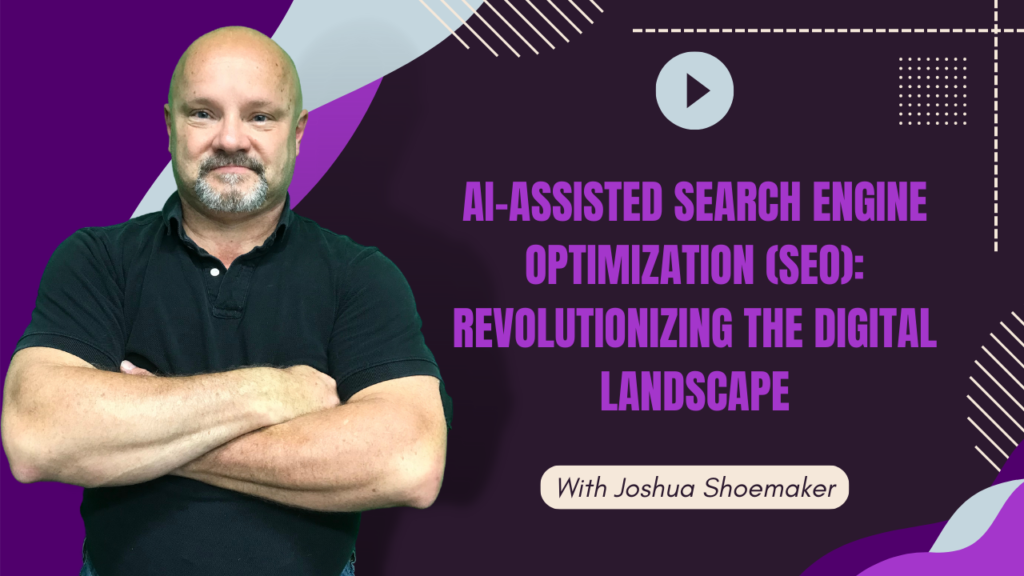
In today’s dynamic digital world, businesses are constantly seeking innovative ways to enhance their online presence and attract more visitors to their websites. Search engine optimization (SEO) has emerged as a crucial strategy for achieving this goal, as it helps websites rank higher in search engine results pages (SERPs), increasing their visibility and organic traffic.
The integration of artificial intelligence (AI) into SEO has revolutionized the way businesses approach search optimization. AI-powered tools and technologies are providing valuable insights, automating tedious tasks, and enabling data-driven decision-making, leading to more effective and efficient SEO strategies.
Understanding the Role of AI in SEO
AI plays a multifaceted role in SEO, transforming various aspects of the optimization process. Here are some key areas where AI is making a significant impact:
- Keyword Research and Topic Discovery: AI algorithms can analyze vast amounts of data to identify relevant keywords, trending topics, and popular search queries. This data-driven approach helps businesses understand the language and intent of their target audience, allowing them to create content that aligns with their search behaviors.
- Content Creation and Optimization: AI-powered tools can generate content outlines, suggest relevant keywords, and optimize existing content for search engines. They can also analyze competitor content and identify areas for improvement, ensuring that the content is informative, engaging, and search engine-friendly.
- Technical SEO and Website Audit: AI can automate technical SEO tasks such as identifying and fixing website errors, analyzing site structure, and optimizing page loading speed. This helps websites meet search engine guidelines and improve their overall search performance.
- Personalization and User Experience: AI can personalize search results based on user behavior, preferences, and location. This tailored approach enhances the user experience, increasing the likelihood of conversions and customer engagement.
Benefits of Using AI for SEO
Adopting AI-assisted SEO offers a multitude of benefits for businesses, including:
- Increased Efficiency and Productivity: AI automation streamlines SEO processes, freeing up time and resources for more strategic tasks.
- Enhanced Data-Driven Decision-Making: AI provides valuable insights into user behavior, keyword performance, and competitor strategies, enabling informed decision-making.
- Improved Search Rankings and Organic Traffic: AI-optimized content and website improvements lead to higher search rankings, driving more organic traffic to the website.
- Enhanced User Experience and Conversion Rates: AI personalization ensures that users find relevant content and have a positive experience, leading to increased conversions.
Examples of AI-Powered SEO Tools
Several AI-powered SEO tools are available to help businesses optimize their websites and improve their search performance. Here are a few notable examples:
- Frase: Frase utilizes AI to analyze search intent, suggest relevant keywords, and generate content outlines. It can also optimize existing content for search engines.
- MarketMuse: MarketMuse leverages AI to analyze content against top-ranking competitors, providing insights into content gaps and optimization opportunities.
- Surfer SEO: Surfer SEO uses AI to analyze competitor content and identify the optimal number of words, headings, and keywords for a given topic.
- ClearScope: ClearScope employs AI to analyze content for readability, engagement, and search engine optimization, providing suggestions for improvement.
- SEO.ai: SEO.ai is an AI-powered writing tool that generates optimized content based on user-defined keywords and topics.
Integrating AI into Your SEO Strategy
To effectively integrate AI into your SEO strategy, consider the following steps:
- Identify Your SEO Goals: Clearly define your SEO objectives, whether it’s increasing organic traffic, improving search rankings, or enhancing user experience.
- Choose the Right AI Tools: Select AI tools that align with your specific SEO goals and budget. Evaluate the features and user reviews of potential tools before making a decision.
- Start with a Pilot Project: Begin by implementing AI for a specific SEO task, such as keyword research or content optimization. This allows you to assess the effectiveness of the tool and make adjustments as needed.
- Combine AI with Human Expertise: While AI can automate and streamline SEO tasks, human expertise remains crucial for interpreting data, making strategic decisions, and ensuring content quality.
Conclusion
AI-assisted SEO is transforming the way businesses optimize their websites for search engines. By leveraging AI tools and technologies, businesses can gain valuable insights, automate tedious tasks, and make data-driven decisions that lead to improved search rankings, increased organic traffic, and enhanced user experience. As AI continues to evolve, its role in SEO is expected to grow even more significant, providing businesses with powerful tools to navigate the ever-changing digital landscape.